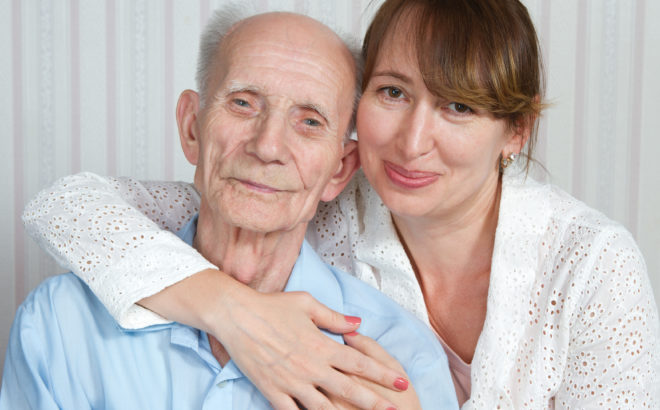Alzheimer’s and other cognitive issues: The importance of sharing what we learn
I am facing something a lot of people face: caring for a loved one with memory loss, often the result of Alzheimer’s disease or another form of cognitive impairment.
While I sometimes feel as if I am falling apart, I know I am not facing this situation alone. Not only do I have other family members to help, but I also have three colleagues who are either going through or have gone through similar challenges. In addition, we work for an organization that offers a range of community-based services geared to those who are 60 and older.
Am I taking this in stride? Absolutely not.
My 93-year-old aunt, who is my godmother and like my second mom, is in a nursing home with this very emotional disease. My mother, who is her 80-year-old sister, has difficulty understanding how my aunt can be suffering when she doesn’t look physically ill. Cognitive issues truly affect the entire family.
It wasn’t until my aunt turned 90 that we started to notice little things. But, like so many others, we chalked it up to age. My colleague, Susan Long, admits it was only when she insisted her mom see a neurologist that she realized the disease was worse than she had thought.
“My biggest struggle is the guilt that I didn’t insist she go earlier,” she told me.
At some point, it is difficult to explain away the memory loss.
For Susan Johns, who also works for Diakon Community Services, that situation occurred when her 90-year-old father didn’t recognize her. “That was my most devastating experience,” she remembers. “For 70 years, I was his little girl. All of a sudden, he had no idea who I was.”
Despite the difficulties we’ve experienced, we all believe we have learned things that we want to share for the benefit of families in similar situations. One thing that was particularly striking for me was how, despite knowledge that my aunt was changing, I wanted everything to remain normal.
While she still lived at home, we often made her go to birthday parties and other family gatherings with the hope she would have a good time. What we didn’t understand at the time was that these events made her more anxious. Looking back, I wish we had handled things differently.
It was only recently that we found a note she had written to herself seven years earlier after my daughter-in-law’s bridal shower. In it, she revealed that she did not know how to write her name or make the food she normally takes to events. “Something is wrong,” she wrote, offering a clear reminder for us that it is never too early to voice your concerns.
Although it was a difficult decision to move my aunt into a nursing home, we knew it was best for her as her disease progressed. However, many people may never reach that point.
My colleague Jenny Wagner and her sister shared the role of caregiver for their mother. Even though her dementia worsened during the last five years of her life, their mother lived independently with their support. Jenny’s sister checked on her throughout the day and Jenny spent weekends with her.
“It was hard in the sense that it was a long, slow goodbye,” she recalls. “You could see it happening and you were living with it. My mom always maintained a great sense of humor, making it easier for my sister and me to maintain our attitude about the whole thing.”
Despite the daily challenges of caring for our loved ones, we all have found or continue to find value in the time we’ve been given together—from deeper relationships with parents and treasured moments with a favorite relative to teaching our children respect for their elders.
—Debbie Herb, coordinator of center services for Diakon Community Services in Schuylkill County, Pennsylvania, with additional thoughts from Susan Long, program coordinator, Diakon Living & Learning; Susan Johns, APPRISE program coordinator; and Jennifer Wagner, community wellness coordinator.
In connection with the thoughts shared in this blog post, Diakon Community Services—along with Independent Living and the county Office of Senior Services—will host “Alzheimer’s and Dementia: A panel of help, hope and understanding,” from 6:30 to 8:30 p.m. Oct. 23 at the Pottsville Senior Community Center. The educational session is designed for individuals and families caring for a loved one with a cognitive impairment. People may register by calling (570) 624-3016.
Click here for additional information, including a list of panelists.


